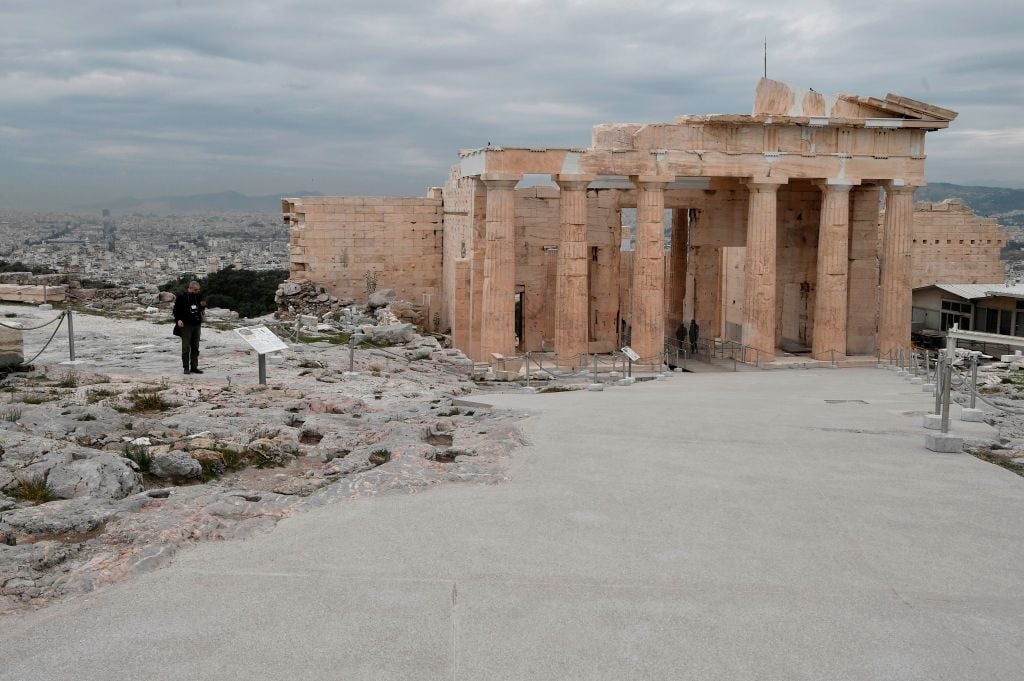
Dozens of archeologists, university professors, and others around the world have signed an open letter protesting a series of renovations planned for the Acropolis in Athens, a Unesco World Heritage Site.
The group says the plans, which include overhauling a major entrance to the Propylaea, the site’s monumental gateway, would be “equivalent to the degradation, concealment, and devaluation of the greatest archaeological and artistic treasure that has been bequeathed to modern Greece, in which humanity has entrusted its preservation.”
According to the Art Newspaper, which first reported the news, the renovation proposal was put together by architectural restorer Manolis Korres, the president of the Acropolis Monuments Conservation Committee, and approved by the Central Archaeological Council in February. It focuses on the reconstruction of the Roman marble staircase, the Acropolis’s western access point, erected in the 1st century AD.
The goal, per Korres’s proposal, is to restore the “monumentality” and “authenticity” of the structure, a task that would necessitate the removal of previous repair work, and “resolve visitor traffic management issues.” A proper survey of the staircase will commence this fall, after which the Greek ministry of culture will initiate a construction plan.
However, the letter, first issued in late February, argues that the proposed changes will “create very serious technical and operational problems,” and even limit the site’s ability to handle large crowds of tourists—the opposite of the intended effect.
Additionally, the letter raises aesthetic concerns about the mismatching of architectural styles across different eras.
The plan stands “contrary to the internationally recognized and established principles concerning the preservation, conservation, and safeguarding of antiquities,” the signatories say.
The Greek ministry of culture did not respond to Artnet News’s request for comment.
In a March statement, the department rejected the letter’s concerns, maintaining that the planned renovations will return the Western entrance to its “original ancient form” based on “exhaustive archaeological-architectural documentation.” Meanwhile, the oldest sections of the architecture “will remain visible and accessible.”
Renovations to the Acropolis, one of the world’s most treasured archaeological sites, are often met with controversy. The last example came last fall, when the ministry upgraded old walkways with reinforced concrete, ostensibly to make them more accessible to people with disabilities.
However, the signatories of the February letter contended that the changes were made just to “accommodate even larger crowds of summer tourists.”
After nearly five months of lockdown, the Acropolis and other open-air archaeological sites in Greece reopened to the public on March 21 of this year.